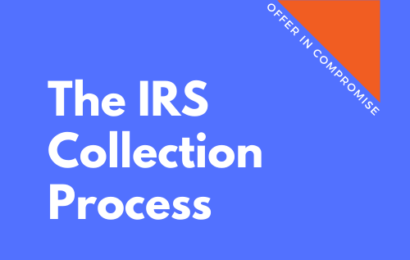
- Instructor: Attorney Bob Schaller
- Lectures: 7
- Quizzes: 1
Routine Installment Agreements.
The Federal government raises money to fund governmental operations through tax revenues collected by the IRS. Taxpayers are required to voluntarily comply with the Tax Code, including filing returns and paying taxes. The IRS wants full payment of the tax liability ASAP. The IRS encourages taxpayers to pay the tax liability immediately, and if not immediately then as quickly as possible. IRM § 5.14.1.2(1) (07-16-2018).
Sometimes taxpayers fail to pay the taxes because of cash flow problems. This unpaid tax liability, aka back-taxes, leads to the IRS unleashing collection activities against the taxpayer, including wage garnishments, bank levies, asset seizures, refund intercepts, and tax lien filings. Therefore, taxpayers are encouraged to pay the liability in full to avoid the costs of an installment agreement, which include a user fee, accrual of penalties and interest, and Notice of Federal Tax Lien (NFTL) filing.
Taxpayers should consider requesting an installment agreement when full payment can be made before the collection statute expiration date. Dudley’s Commercial and Ind. Coating v. U.S.I.R.S., 292 F.Supp.2d 976 (M.D. Tenn., 2003) (“26 C.F.R. § 301.6159-1 clearly states that the liability should be ‘fully paid’ under any installment agreement entered into by the director”). If full payment cannot be achieved by the collection statute expiration date, and taxpayers have some ability to pay, Partial Payment installment agreements may be granted. IRM § 5.14.1.1.1(1) (07-16-2018); IRM § 5.14.2. Alternatively, Offer in Compromise should be considered when full payment cannot be achieved, and innocent spouse relief should be explored where appropriate.
Taxpayers can circumvent the IRS’ collections apparatus by proposing an installment agreement that would pay the back-tax liability. An installment agreement allows the taxpayer to pay back-tax liability, penalties, and interest over time. Although a written request is preferred, a proposal may result from letters, phone calls, e-mails or other communications; the proposal need not be in writing. IRM § 5.14.1.3 (07-16-2018); United States v. Nugent, 300 F.Supp.3d 932 (E.D. Ky. 2018). Congress encourages installment agreements as a vehicle for paying back-taxes. Taxpayers can formally request a routine installment agreement by utilizing IRS Form 9465, Installment Agreement Request. Where applicable, IRS Form 433-D, Installment Agreement is the official installment agreement.






